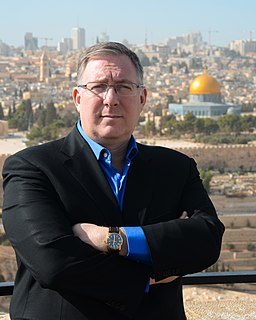A Quote by Tom Tancredo
This epidemic of student demands for 'safe places' to protect against threatening words and ideas would make a great science fiction film, but unbelievably, events seem to be outpacing the political imagination.
Related Quotes
I do think that science fiction ideas are best expressed through visual media like film and TV. Realist literature depicts things that we have seen in life, but science fiction is different: what it depicts exists only in the author's imagination. When it comes to science fiction, the written word is inadequate.
Science fiction is the most important literature in the history of the world, because it's the history of ideas, the history of our civilization birthing itself. ...Science fiction is central to everything we've ever done, and people who make fun of science fiction writers don't know what they're talking about.
Taking ideas seriously does not fit with the rhetorical style of textbooks, which presents events so as to make them seem foreordained along a line of constant progress. Including ideas would make history contingent: things could go either way, and have on occasion. The 'right' people, armed with the 'right' ideas, have not always won. When they didn't, the authors would be in the embarrassing position of having to disapprove of an outcome in the past. Including ideas would introduce uncertainty. This is not textbook style.
Science fiction is a weird category, because it's the only area of fiction I can think of where the story is not of primary importance. Science fiction tends to be more about the science, or the invention of the fantasy world, or the political allegory. When I left science fiction, I said "They're more interested in planets, and I'm interested in people."
Now, I'm a failed political consultant. But sometimes fiction has a way of capturing people's imagination in a way that non-fiction doesn't. Conservatives typically haven't written much fiction - specifically political thrillers - over the years to educate, inspire and mobilize people on issues of great import, but we ought to.
I define science fiction as the art of the possible. Fantasy is the art of the impossible. Science fiction, again, is the history of ideas, and they're always ideas that work themselves out and become real and happen in the world. And fantasy comes along and says, 'We're going to break all the laws of physics.' ... Most people don't realize it, but the series of films which have made more money than any other series of films in the history of the universe is the James Bond series. They're all science fiction, too - romantic, adventurous, frivolous, fantastic science fiction!
So much of the writing is not conscious, in the sense that it's not calculated. I remember in film school we had so many studies with big fancy words where you could dissect a movie and make charts of all of the characters' complicated inner relations and themes and what does this mean? And it's overwhelming as a student. It's great for a student, but as a writer, it's paralyzing.
For me, two of my favourite science fiction films are Blade Runner, which is fantastic, and Terry Gilliam's Twelve Monkeys. Both of those were smart science fiction films hitting more of a medium budget, and I desperately hope there is an audience for that kind of film because I would love that to be my next film, on that kind of scale.
































